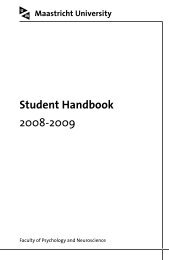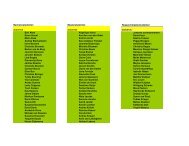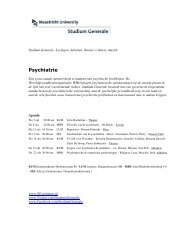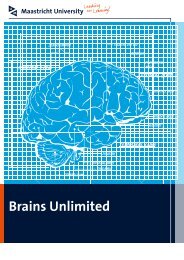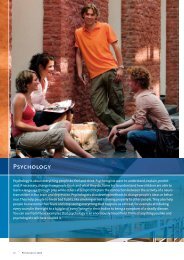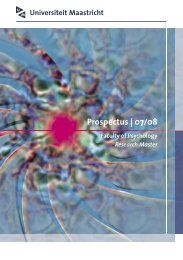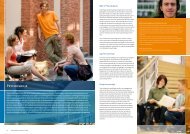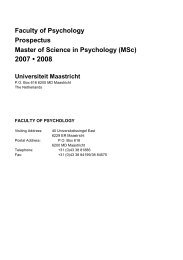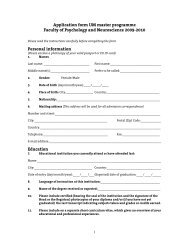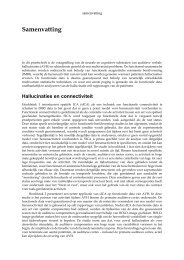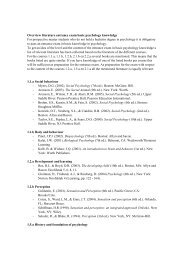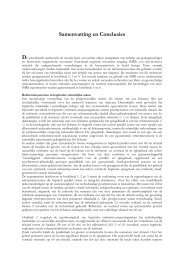Prospectus | 08/09 - Psychology and Neuroscience - Maastricht ...
Prospectus | 08/09 - Psychology and Neuroscience - Maastricht ...
Prospectus | 08/09 - Psychology and Neuroscience - Maastricht ...
Create successful ePaper yourself
Turn your PDF publications into a flip-book with our unique Google optimized e-Paper software.
<strong>Prospectus</strong> Research Master <strong>Psychology</strong> 20<strong>08</strong> • 20<strong>09</strong><br />
72<br />
What neurobiological <strong>and</strong> cognitive mechanisms determine whether a person ages<br />
pathologically, normally, or successfully? How can this aging process be influenced?<br />
Students will critically reflect on influential theories, state-of-the-art research,<br />
established research methods, <strong>and</strong> clinical interventions to address these questions.<br />
Themes will be physical (somatic) aging, brain aging (biological perspective), cognitive<br />
aging (behavioural perspective), pathological aging (mild cognitive impairment,<br />
dementias, Alzheimer’s disease, Parkinson’s disease), intervention strategies, <strong>and</strong><br />
methodological issues in aging research.<br />
Literature<br />
An e-reader will be provided. The course will not be accompanied by a textbook, but<br />
useful reference books will be recommended in the course manual.<br />
Instructional Approach<br />
Tutorial group meetings, lectures.<br />
Form of Assessment<br />
Written exam with open questions.<br />
| 445NP Biopsychology – 3 credits<br />
Coordinator: Anke Sambeth, Neuropsychology & Psychopharmacology (FPN),<br />
Phone 38 81757, 40 Universiteitssingel East, Room 2.741,<br />
E-mail: anke.sambeth@psychology.unimaas.nl<br />
Description of the Course<br />
This course provides an in depth description of biopsychological concepts which<br />
have been presented in the bachelor program in the first <strong>and</strong> third year. It will cover<br />
elements from functional neuroanatomy, neurophysiology <strong>and</strong> psychopharmacology,<br />
as applied to brain <strong>and</strong> behaviour research. Major emphasis will be on the macro<strong>and</strong><br />
microanatomy of the brain, neurochemical <strong>and</strong> neurobiological mechanisms<br />
related to neurotransmission, hormones <strong>and</strong> drug action. With respect to ‘function’, an<br />
elaboration will be given of processes underlying sexual behaviour, affective behaviour,<br />
motivated behaviour <strong>and</strong> cognitive processes.<br />
Literature<br />
Journal articles <strong>and</strong> book chapters.<br />
Instructional Approach<br />
Tutorial group meetings.<br />
Form of Assessment<br />
Written assignment, presentation, <strong>and</strong> active participation.



